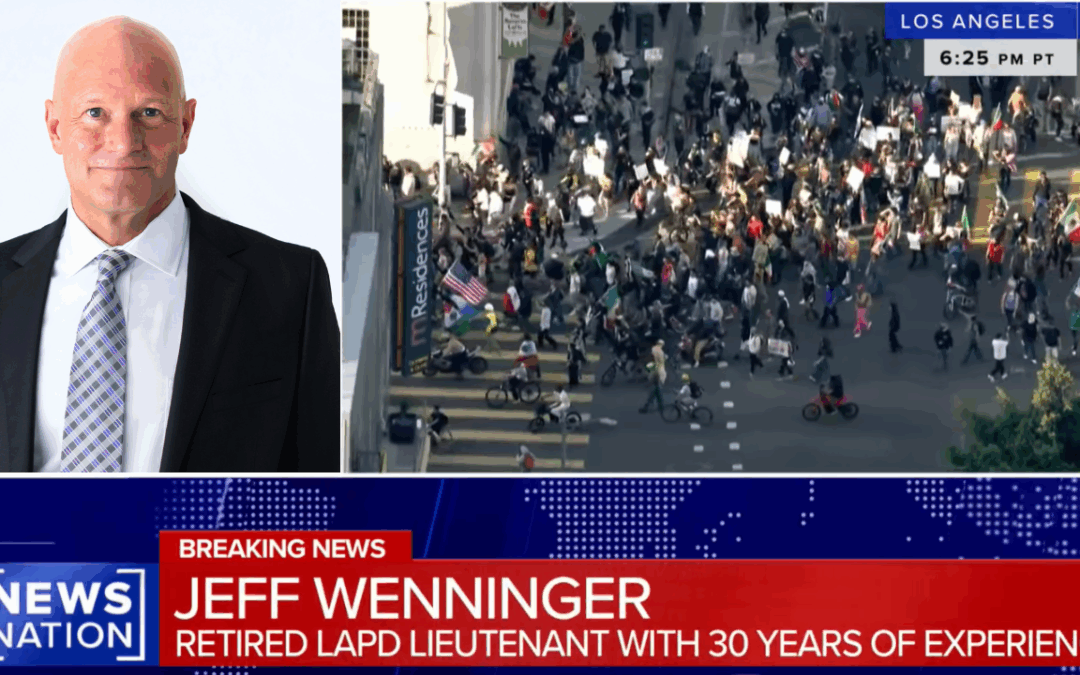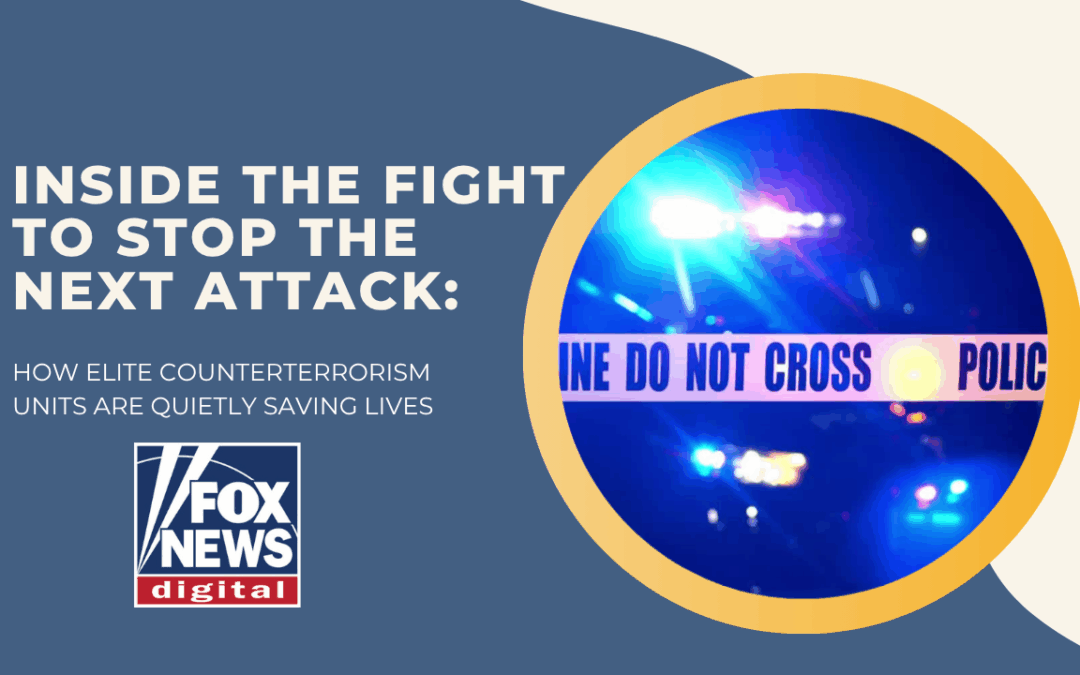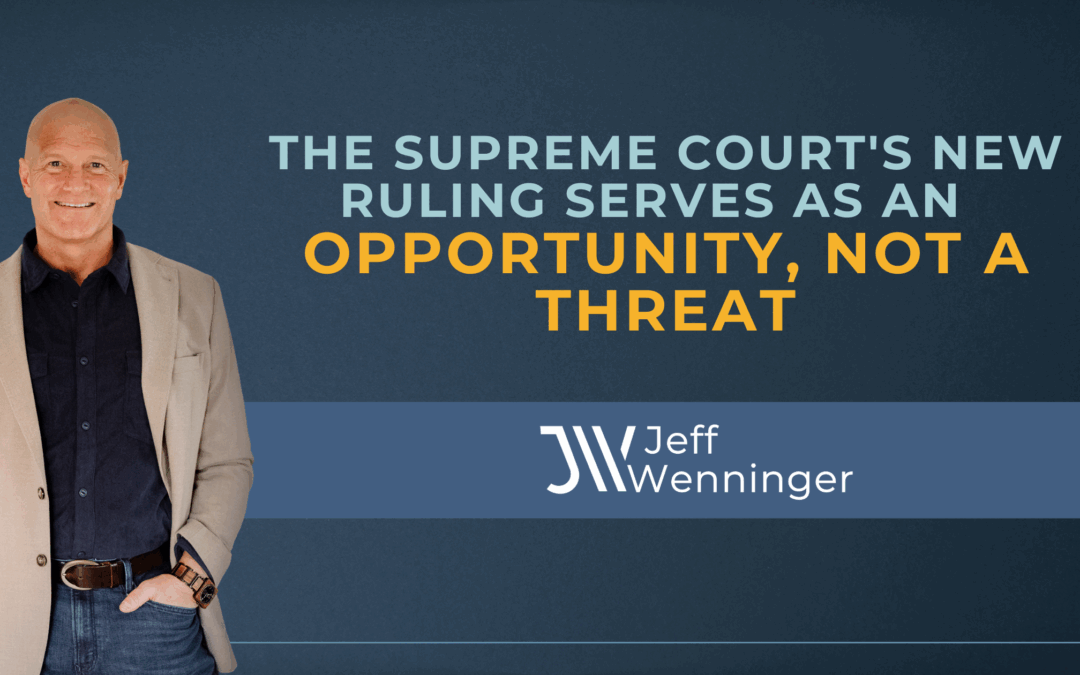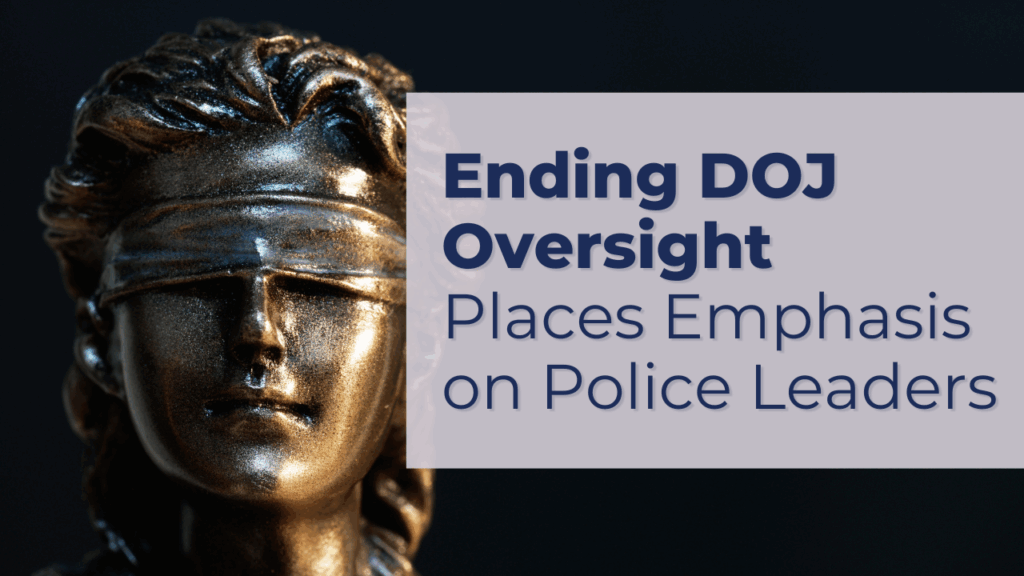
The Department of Justice recently announced plans to abandon federal oversight agreements—known as consent decrees—with several police departments, including those in high-profile jurisdictions such as Minneapolis and Louisville. Some in law enforcement might view this as validation or even vindication, interpreting the dismissal as proof they’ve been unjustly criticized. However, systemic issues within policing remain evident, and reducing accountability now poses significant risks.
After over 30 years in policing—including overseeing hundreds of officer-involved lethal force investigations at the LAPD—I’ve learned that consistent oversight is non-negotiable. Consent decrees aren’t perfect, but they offer proven pathways toward meaningful change, greater accountability, and safer communities when implemented correctly.
Why Consent Decrees Matter
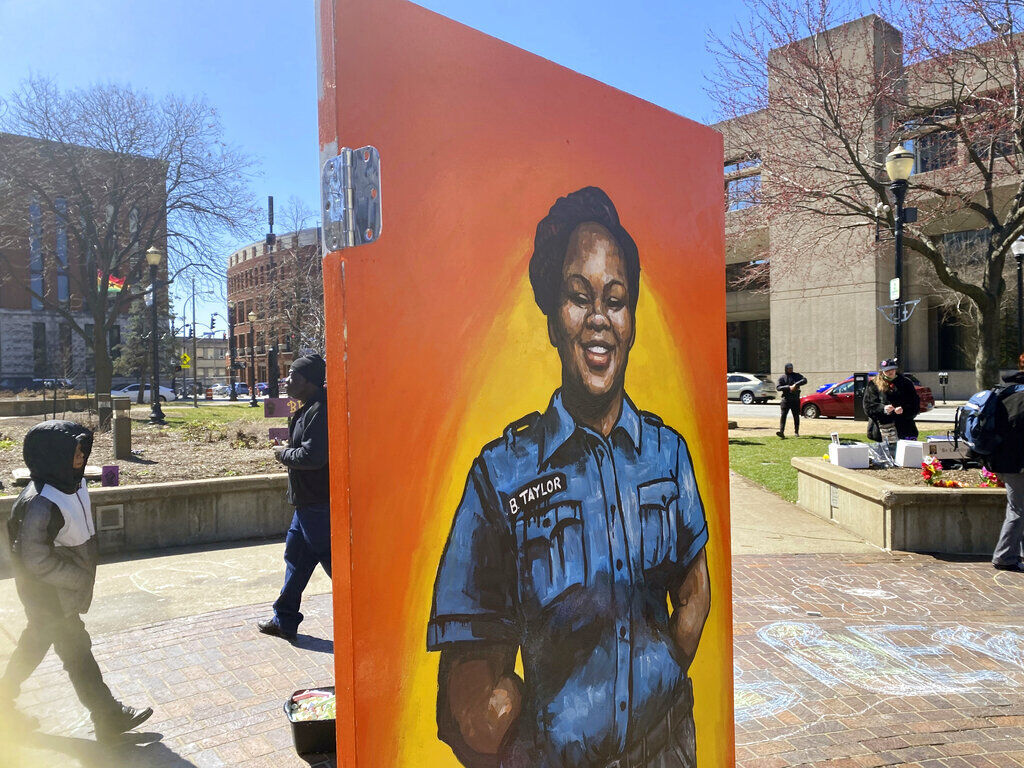
Consent decrees aren’t a punishment but mechanisms designed to promote consistently better policing outcomes. They offer detailed blueprints that require police agencies to implement proven management best practices and uphold rigorous oversight to safeguard constitutional rights. A critical point often misunderstood is that consent decrees are voluntarily agreed upon—the DOJ cannot impose them. Their effectiveness hinges on mutual agreement and proactive commitment from local leadership.
Consider the Breonna Taylor incident in Louisville. Officers lied under oath in affidavits, and lax internal oversight allowed fraudulent warrants to reach judicial approval. Had they been in place, proper oversight mechanisms could have prevented this devastating tragedy without consent decrees ensuring accountability, systemic failures like these risk being repeated.
In Minneapolis, despite the federal dismissal, Mayor Jacob Frey and Chief Brian O’Hara affirmed they would continue efforts to meet community expectations. Frey stated clearly,
“The bottom line is that we are doing it anyway. We will implement every reform in the 169-page consent decree. Minneapolis is making great progress on police reform, and we don’t need permission from Washington or a federal judge to keep pushing forward.”
Such proactive leadership should serve as a model for other departments nationwide.
What LAPD Got Right and Memphis Got Wrong
During my leadership in rebuilding LAPD’s Rampart Division Gang Unit under federal oversight, we saw the consent decree not as a punishment but a pivotal opportunity to regain public trust. It enabled us to establish rigorous oversight and strong management systems. These accountability measures significantly curtailed the likelihood of misconduct going unnoticed.
In stark contrast, consider the tragic Tyre Nichols incident involving the Memphis Police Department. Officers, some in hoodie sweatshirts and with insufficient oversight, were able to abuse their authority with devastating consequences.
These failures aren’t mere flukes or isolated incidents. They’re glaring indicators of systemic, negligent leadership. Without imposed best practices and enforced oversight, departments allow harmful behaviors to persist unchecked.
Watch the short video clip above to catch a glimpse of what I’m talking about. To learn more about how Memphis got it wrong, I discuss it in depth here on THE IA GUY Podcast.
UCLA and the Limits of Policy Alone
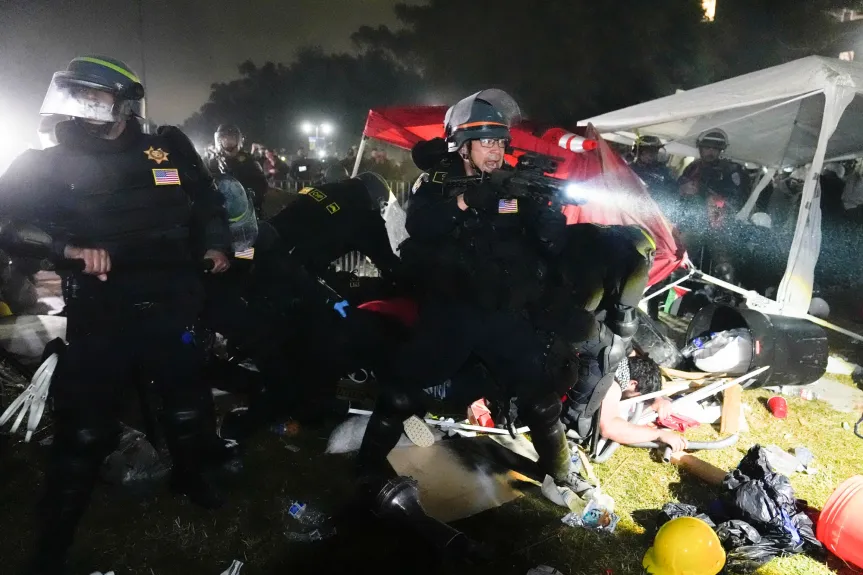
I analyzed a similar failure last year when CHP officers deployed beanbag shotguns and rubber bullets against protesters at UCLA in 2024. As detailed in my article for CalMatters, California law and department policy explicitly prohibits the use of these measures, except in narrowly defined circumstances, none of which applied here. Yet, despite codified restrictions to regulate this police conduct, these violations occurred anyway. Why? Because policies without proper oversight are meaningless.
Misconduct isn’t just an aberration; it often indicates deeper cultural issues and systemic failures that continue unchecked in the absence of oversight.
Best Practices and the Danger of Complacency
Law enforcement leaders across the U.S. must proactively adopt and consistently implement best practices, rather than waiting for external mandates or reacting only after crises occur. The dangers of complacency are starkly illustrated by troubling data from my home state of Ohio: a 2016 survey of 300 law enforcement agencies shockingly revealed that only five met the state’s mandatory training standards.
Further underscoring this issue, a December 2021 lawsuit highlighted persistent concerns about police departments failing to meet these essential training requirements. Such lapses in oversight pose serious risks, compromising officer safety and significantly eroding public trust.
Recognizing these ongoing concerns, Ohio’s 30,000 peace officers are required to complete 24 hours of continuing professional training (CPT) each calendar year starting in 2022. Eight of these hours must specifically cover critical topics mandated by the Ohio Peace Officer Training Commission: one hour on Search & Seizure, three hours on Use of Force, two hours on Legal Updates, and two hours on Ethics Law.
These courses are accessible through OPOTA Online. Officers can fulfill the remaining 16 hours with approved courses across important areas such as:
- Officer Trauma & Wellness
- Report Writing
- Domestic Violence
- Leadership
- Vehicle Dynamics
However, I firmly believe that simply checking boxes with online training modules alone is insufficient. Practical training must include regular, scenario-based exercises that realistically replicate real-world challenges officers face daily. Scenario-based training is essential for building and maintaining officers’ decision-making skills, situational awareness, and readiness under pressure.
Additionally, police decision-makers and executives must engage in continuous, rigorous analysis of their department’s effectiveness, not simply respond to issues reactively after high-profile incidents. Shortcomings or missteps at the DOJ level do not absolve local departments from addressing their internal challenges.
Far too often, misconduct is dismissed as isolated incidents rather than recognized as symptomatic of deeper accountability problems. True leadership demands the courage to identify these underlying patterns and act decisively to implement sustainable solutions.
Community Engagement and Financial Support
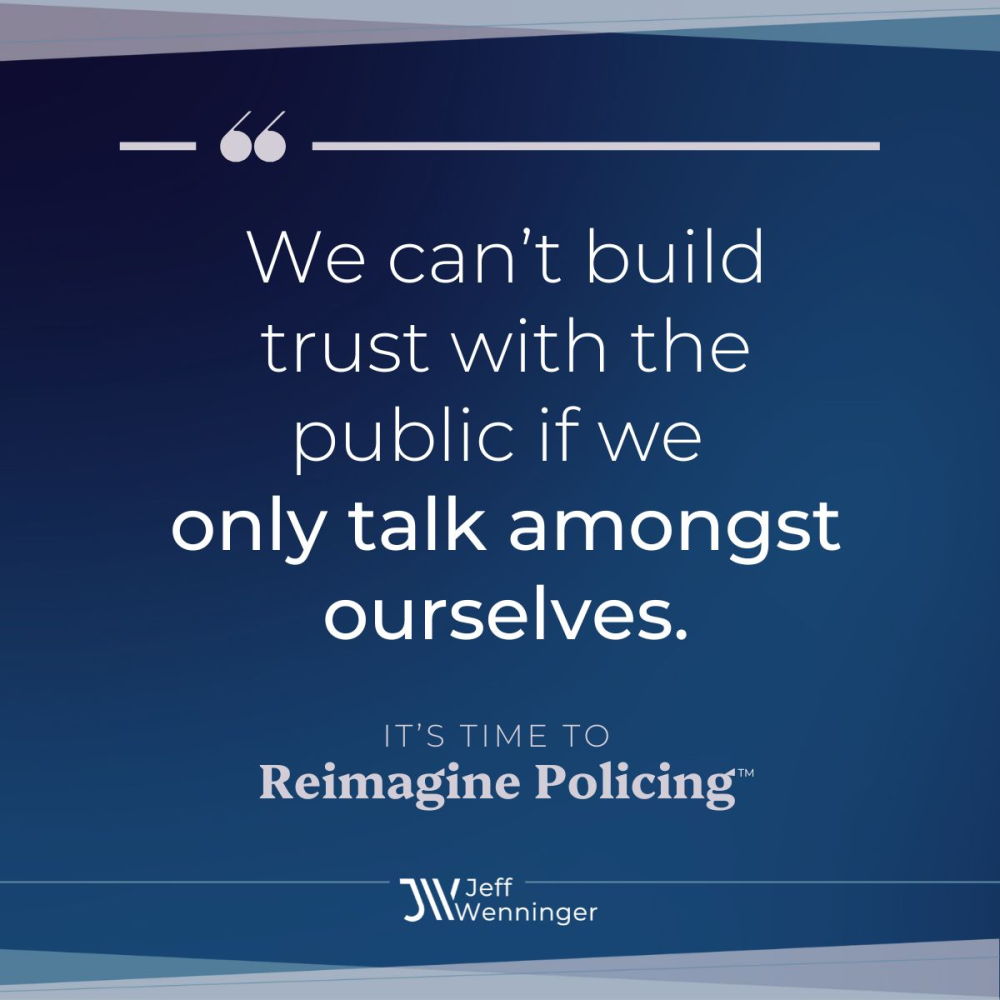
Many departments cite limited budgets as barriers to improvement, a concern I genuinely understand. According to recent data, more than two-thirds (70%) of U.S. police departments serve communities with fewer than 10,000 residents. Given these constraints, it’s crucial for leaders to actively explore and secure funding through avenues like federal grants and community partnerships. Local communities frequently have valuable yet underutilized resources, such as grant-writing capabilities and financial backing from businesses and civic groups. Proactively engaging community members in oversight efforts can effectively bridge funding gaps while also strengthening community relations and trust.
Incentivizing best practices through targeted funding is both practical and politically viable. Rather than imposing rigid national standards, federal agencies like the DOJ should focus on empowering local departments through supportive financial incentives. This approach promotes innovation, encourages proactive leadership, and fosters more effective and accountable policing.
Moving Forward: Our Shared Responsibility

The absence of federal oversight doesn’t mean policing is less accountable. Leadership in policing means maintaining rigorous standards and independent oversight regardless of federal mandates. Without consistent accountability, policing reverts dangerously toward unchecked practices, risking both public safety and community trust.
Effective oversight isn’t about restriction; it’s about creating a policing culture that protects officers and their communities. Law enforcement is responsible for proactively adopting best practices, not waiting for external forces to impose them.
In my new book, On Thin Ice, I delve deeper into these critical themes: the necessity of proactive leadership and the courage required to lead meaningful change.
I invite you to read the prologue for free and join the conversation about the future of policing:

Policing in America stands at a crossroads. We can choose complacency, or we can choose proactive accountability.
Let’s make the right choice—our communities deserve nothing less.
#PoliceLeadership #AccountabilityMatters #JeffWenninger #OnThinIce #PublicSafety #Transparency #CivilianOversight #LeadershipInsights #CommunityTrust
Sources cited:
What’s next for Minneapolis poling after federal deal is scrapped?
Opinion: California limits police but still bean bag shotguns at UCLA
Breonna Taylor Raid Puts Focus on Officers Who Lie for Search Warrants – The New York Times
Local Police Departments Personnel, 2020

